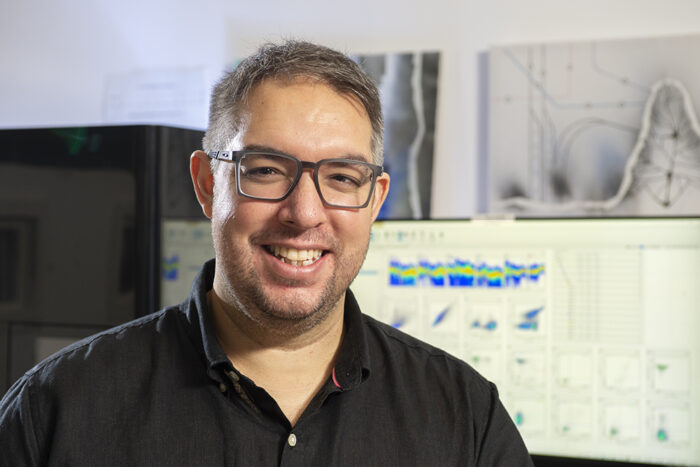
The LMB is thrilled to announce the appointment of Noe Rodriguez as a Group Leader in our PNAC Division, where he will investigate the fundamental cellular and molecular mechanisms by which neuro-immune crosstalk regulates health and disease.
Noe commented: “I have always been fascinated by the intricacies and inner workings of the nervous and immune systems and how important their balance and function are for our lives. I am really excited to start a research programme at the LMB, where my team will be able to focus on solving challenging questions aimed at understanding how the nervous system and the immune system interact to protect us against viral infections and cancers. I believe that by better understanding which neurons, immune cells and molecules are implicated in the immune response, we could gain valuable insight into how our body works and, potentially, into how we can modulate this to improve human health”.
Our nervous system captures signals from the environment and reacts appropriately. Sometimes this occurs consciously, like when we smell something delicious and decide to move towards its source. Other times it happens as a reflex, for instance when touching something scorching and instinctively removing the hand from harm. Research suggests that a similar process happens when we have an infection: the neurons detect danger (e.g. a virus) and react by adjusting the immune response against the threat.
Noe’s research aims to learn how neurons interact with immune cells in the lungs and other tissues and discover the molecules that mediate this process. To this end, Noe’s group will try to identify the cells that are responsible for these connections and their defining features and roles. In animal models of viral infections and cancer, they will control the function of various peripheral neurons with targeted techniques using light (optogenetics) and synthetic drugs (chemogenetics) to investigate how immune cells behave as a consequence of neuronal activity.
This research will improve our understanding of how nervous and immune systems work. This knowledge could ultimately lead to new and improved therapeutic interventions against viruses and cancers.
After studying Biology at the Complutense University of Madrid, Spain, and completing a Master’s degree in Molecular and Cellular Biology at the Autonomous University of Madrid and the Spanish National Centre for Biotechnology, Noe obtained his Ph.D. at the Complutense University by conducting his doctoral research at Beth Israel Deaconess Medical Centre in Boston, USA. Following this, Noe undertook postdoctoral studies at Salvador Zubiran National Institute of Health Sciences and Nutrition and the National Autonomous University of Mexico in Mexico City. He then moved to the LMB first as a Marie Skłodowska-Curie/MRC Career Development Fellow and later as a Senior Investigator Scientist.